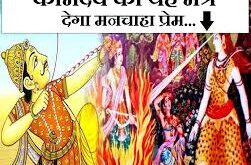
एक चीनी संत थे। वह बहुत वृद्ध थे। उन्होंने देखा कि अंत समय निकट आ गया है, तो अपने सभी भक्तों और शिष्यों को अपने पास बुलाया। वह सभी से बोले, थोड़ा मेरे मुंह के अंदर तो देखो भाई? मेरे कितने दांत शेष हैं।
प्रत्येक शिष्य ने मुंह के भीतर देखा और प्रत्येक ने कहा कि दांत तो कई वर्षों से समाप्त हो चुके हैं। तब संत ने कहा कि, जिह्वा तो विद्यमान है। सभी ने कहां, ‘हां’। संत बोले, ‘यह बात कैसे हुई?’
जिह्वा तो जन्म के समय भी विद्यमान थी। दांत उससे बहुत बाद में आए। बाद में आने वाले को बाद में जाना चाहिए था। ये दांत पहले कैसे चले गए?
तब संत ने थोड़ा रुके और फिर बोले कि यही बतलाने के लिए मैनें तुम्हें यहां बुलाया है। देखो, ‘जिह्वा अब तक विद्यमान है, तो इसलिए कि इसमें कठोरता नहीं है।
ये दांत बाद में आकर पहले समाप्त हो गए तो इसलिए कि इनमें कठोरता बहुत थी। यह कठोरता ही इनकी समाप्ति का कारण बनी। इसलिए मेरे बच्चों यदि देर तक जीना चाहते हो तो नम्र बनो, कठोर नहीं।’
In English
There was a Chinese saint. He was very old. They saw that the end time has approached, then called all their devotees and disciples to themselves. He said to all, look inside my mouth so brother? How many teeth have I left
Every disciple looked inside the mouth and everyone said that the tooth has been exhausted for many years. Then the saint said, the tongue is present. Where did all, ‘yes’ The saint said, ‘How did this matter happen?’
Ziva was also present at birth too. The tooth came much later The latter should have come later. How did these teeth first go?
Then the saint stopped a little and then said that I have called you here to explain this. See, ‘Jihwa is present so, so that there is no hardness in it.
These teeth were later exhausted later, so that they had very hardness. This rigidity caused them to end. So if my children want to live long, be humble, not harsh.
 पौराणिक कथाओं, प्रेरक क्षण, मंदिरों, धर्मों, फिल्मों, हस्तियों के बारे में दिलचस्प जानकारी, हजारों गाने, भजन, आरती के बोल हैं Your wish may come true today…
पौराणिक कथाओं, प्रेरक क्षण, मंदिरों, धर्मों, फिल्मों, हस्तियों के बारे में दिलचस्प जानकारी, हजारों गाने, भजन, आरती के बोल हैं Your wish may come true today…



























